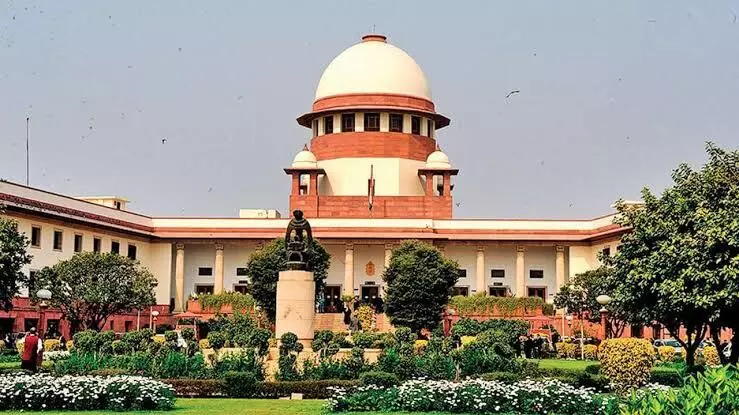
Karnataka hijab row: 'Will right to dress also mean right to undress?' asks Supreme Court
text_fieldsWhile hearing arguments on behalf of petitioners challenging the hijab ban in Karnataka's government institutions, the Supreme Court on Wednesday asked if the right to dress would also mean a right to undress.
As per a PTI report, Justice Hemant Gupta asked the question in response to an argument by the petitioner that the right to dress forms part of the fundamental right of freedom of speech and expression under Article 19 (1)(a), and the same has also earlier been laid down by the court.
"You cannot take it to an illogical end," a bench of Justices Hemant Gupta and Sudhanshu Dhulia said when a previous judgment of the apex court was cited by senior advocate Devadatt Kamat and an argument raised regarding Article 19 (1)(a) of the Constitution and the freedom to dress.
When the bench asked "Will right to dress mean the right to undress also?," Kamat responded by saying, "Nobody is undressing in school. Can wearing of additional dress, under Article 19, be restricted? If one wears hijab, whose morality is disturbed? The grounds of reasonable restriction related to public order and morality under Article 19 (2) can't apply to hijab situation," Kamat added. Responding to Kamat's argument, Justice Gupta said, "No one is prohibiting you from wearing hijab. You can wear it wherever you want to. The restriction is in educational institutions."
The bench also comprising Justice Sudhanshu Dhulia said only one community wanted to come in religious attire while other students followed the uniform prescribed. "Your reading of Government Order (dated February 5) may not be correct because it's only one community which wants to come in religious dress," Justice Gupta said on Kamat's submission that the GO which did not allow students to wear the hijab to educational institutions was targeting one community.
The court also made it clear that the question in the Karnataka hijab ban matter is only about the restriction in schools as nobody is prohibited from wearing it anywhere else they want. The bench was told that the matter is referred to a five-judge constitution bench.Kamat asked the court that if a girl, in the exercise of her rights under Articles 19, 21, or 25 of the Constitution, decides to wear a hijab, then can the State put a prohibition that will violate her rights?
The bench orally observed, "The question is nobody is prohibiting you from wearing the hijab. You can wear it wherever you want. The only restriction is in the school. We are only concerned with that question."























